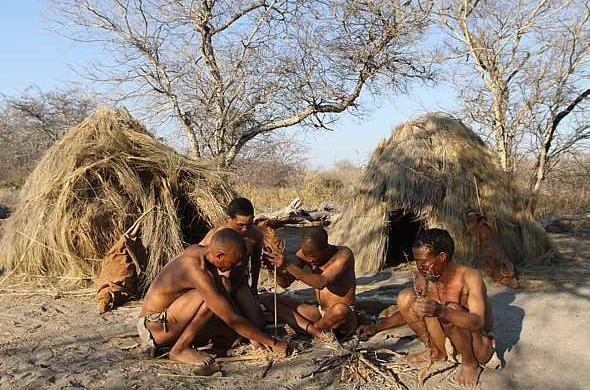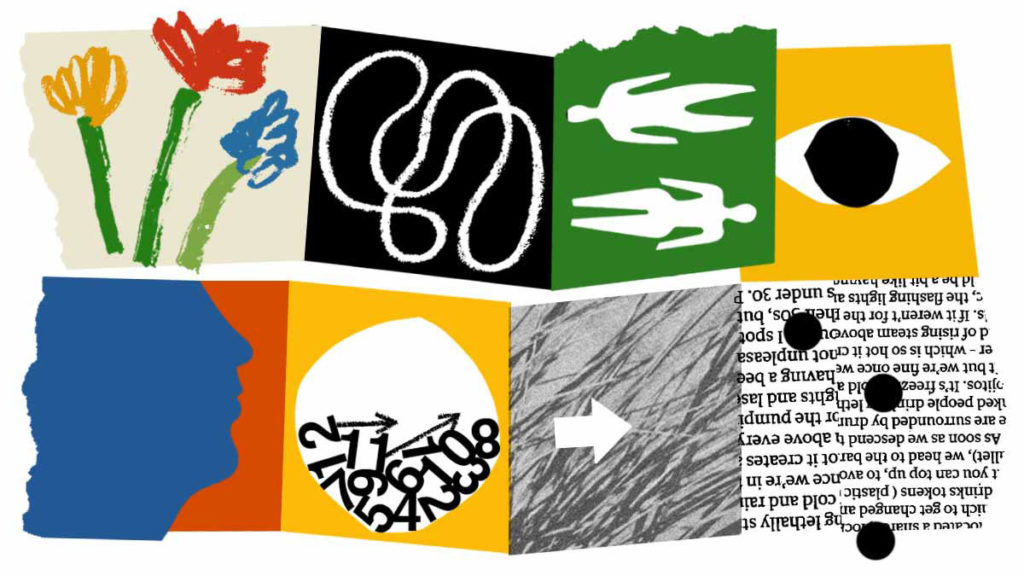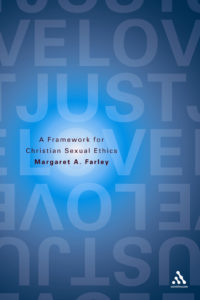
Yesterday, when I sat down to write to you I didn’t really feel like making the effort. Instead, a few relaxing hours with a slow cup of coffee were calling to me. But then my thoughts challenged my feelings.
“Being useful on a Saturday morning means writing to you,” I told myself. Producing Sunday’s newsletter is on the schedule, how I’m adding (as opposed to subtracting) something to the cosmic balance sheet on this particular day.
Then I worried: Is writing this week’s post just one more unnatural way that I contort myself into Being Productive or, because it’s nurturing a community and not merely commodifying one, is what comes naturally to me here fundamentally different from the urgency that drives me at most other times?
I hoped it was the latter, because I can imagine that writing to you is not “more work” (or really “work” at all) but instead its polar opposite: an essential human interaction that’s valuable in its own community-building way, with no purpose beyond initiating a good conversation around a campfire that we’ll gather around remotely after I press “Send” every Sunday morning.
But as I dug into writing the paragraphs below, every coffee-calling part of me knew that I’d probably gone back to work instead.
We’ll get back to my conundrum later, after considering why it matters to think as well feel our ways through a version of my same, basic question:
Even when we don’t want to be working, why does it feel like we always are?
The Problem
It’s amazing, really, how much we’ve bought into the myth of continued “productivity” and “usefulness” today. Indeed, our language tells us about the depths of our belief, since the opposites of these two words (when applied to people) are almost always negative. If they’re not “productive” and “useful,” they must be “lazy” and “useless.”
None of us want to be a parasite (which is another trope). Instead, we want to contribute to that overall balance sheet, and so an entire system has been created to support, measure and reward our productivity and continued usefulness, not for it’s own sake but to sustain the system itself. You could call it 21st Century capitalism or simply a giant hamster wheel that provides all the rationales we’ll ever need to keep on going—never getting off of it until all our energies are spent and we’ve been reduced to uselessness in it’s final form, which, of course, is death.
In the ultimate fantasy about Hamsterdom, maybe our continuous push to be useful (and never concede to retirement) can even delay the inevitable. Not worked to-death exactly, just denying its bitter aftertaste.
She was productive to the very end, god bless her. What a good life she had. That’s how I want to go too! Never a burden to anybody, she worked until the very end.
To some extent, we’ve all bought into this fantasy, but what about the price we’ve been paying to maintain it? Because oftentimes, work can be “life” (as in “life-force”) threatening.
Undoubtedly, it’s why the work we’re always doing feels exhausting. It is exhausting, sucked-dry to the marrow exhausting, because we’re condiioned to work and be productive and never be a burden to anybody, except, of course, to ourselves.
In this, we’re both the enablers of and the fuel for Hamsterdom’s productive fires, and, from its system perspective, the best part is that we’ve come to believe that working this much is actually good for us too! Busy hands are happy hands. Generous hands. Building character.
Well, it’s the ultimate hoodwink.
Indeed, this colonization of our vital energies is so complete that it’s almost imperceptible to us on most days, but we can still get glimpses of what we’ve lost when we consider our so-called “time off.”
Even our play or leisure time today is increasingly turned into a productivity challenge or been repurposed somehow as a marketable product.
How many photos can I take at a Second-Line parade in New Orleans or while I’m visiting Jerusalem? (Last week’s post.) How many experiences—photographic or otherwise—can I consume on my vacation before I’m “full” and feel I’ve made “the most of my time away?” How many pictures can I post about it? How can I improve my fitness or knowledge or adaptability today, help my kids get into better schools, show my neighbors an even more beautiful garden, whatever it is, because I’ve only got this little block of “free” time before I’m supposedly “back to work”?
Or approached somewhat differently:
If we’re smarter than hamsters, why aren’t we working ‘only enough’ to enable us to get off that treadmill for meaningful chunks of time so we can enjoy the convivial life that we’ve otherwise been missing?
Part of why I’m asking these questions today comes from reading a series of thought-provoking essays by Tedd Siegel, a prolific writer who’d been wondering the same thing and found himself in conversation with a range of others who’d been wondering about it too. (This will take you to his starting block essay, in a rich and continuing series of them.) Siegel begins with an observation:
[T]he deal we’re being offered (work yourself to death for the next thirty years while you build your human capital) requires each of [us] to take out a mortgage on the self that [we] know can never be paid off. The deferral of most personal goals to an imagined future, in exchange for laboring continually for the goals of their employers, lies exposed as a rotten deal….We’ve played by a set of rules that was too optimistic, too individualistic, and too lacking in urgency for change.
Siegel writes to agitate for that change, and he identifies several root causes for the state of our near-ceaseless work today. One results from the shift (particularly in developed countries) from a manufacturing to a service and finally to today’s digital economy. (With my asides to Siegel’s observations) this caused:
a qualitative change in our relationship to our jobs. Our jobs are more intimate to us [today], more reliant on our interpersonal aptitudes and emotional intelligence. [We are not just cogs-in-a-wheel making widgets anymore. For this new hamster wheel, we have to go to school first, know how to trouble-shoot, etc.] Neoliberal capitalism [as he calls it], has us constantly concerned with its problems [meaning that we take our work home with us], integrating them into our life problems in order to get things done.
(Once upon a time, a fellow lawyer was onto something when she asked me whether I was billing the time I spent thinking about my cases in the shower.)
As he got going, Siegel eventually introduced me to Jenny Odell, who’s a professor at Stanford, and her 2017 book How To Do Nothing: Resisting the Attention Economy. Two words became important to him and to me in her book title. The first is “Nothing.” Odell doesn’t necessarily mean that we should be doing nothing at all, just nothing that Hamsterdom wants us to be doing (which includes relaxing and zoning out). The second word is “Resisting.”
Throughout her book, Odell argues that all of us should create an autonomous zone of resistance to Hamsterdom’s relentless demands—a protected and even defiant place where we hold onto aspects of our lives that cannot (and never should be) optimized. It’s making a deliberate conscious choice, every day and maybe several times as day, to carve out a space for living in a way that cannot be appropriated or assimilated by the market’s logic and turned into a deliverable—because we simply won’t allow it. (For example, in the era of Google and Facebook, that includes taking back our attention from companies that are selling it to others by turning off their apps on our phones and laptops.) Then, and most importantly, the autonomous zone we’ve recovered will allow us, at long last, to enjoy a version of “a satisfying, collective life” that’s entirely apart from work.
For Odell, the act of resisting-in-place “is to make oneself into a shape that cannot be easily appropriated by a capitalist value system.” It begins with a very specific way of “doing nothing” that involves learning (or more accurately, re-learning) how “to redirect and enlarge our attention.”
And how will we spend all of this liberated attention? Once again, Odell’s answer is something that humans have always known instinctively how to do, at least (it seems) until quite recently. It involves nothing more complicated than rejoining the conviviality of a collective life with other people.
The Way We Were

Like Siegel and Odell, James Suzman has been troubled for some time by the impacts of modern work on our lives and wondered, from his perspective as an anthropologist, whether humans are hard-wired “to work this way” or whether it was cultural imperatives (culminating in Hamsterdom) over-riding our essential natures. His research took him to hunter/gatherer communities where he could observe human behavior before “all of this civilization came along,” and it resulted in a series of books, most recently, Work: A Deep History from the Stone Age to the Age of Robots (2021).
Suzman discovered several things in the course of his research, among them that we are not, as humans, naturally inclined to allow work to take over our lives.
In fact, all the way back to our hunter/gatherer forebears, humans viewed their time and proceeded to organize it in ways that maximized the convivial zone of collective life while safeguarding its refuge (by, for example, ensuring that community members never felt devalued by someone else’s status or driven to distraction by internal competition). Indeed, hunter/gather groups like the Ju/’hoansi, some of whom still live in southern Africa, went to great pains to ensure that they only worked the amount that was absolutely necessary to support the time they spent together. Concluded Suzman:
Half of the value of understanding hunter-gatherer society is to recognise that lots of these things [about working] that we think we are hostage to are actually not a part of our nature.
For example, the Ju/’hoansi have a fundamentally different view of scarcity (or “enough”) than we seem to. In the course of his observations, Suzman found that the Ju/’hoansi rarely stored food that they had hunted down or gathered for more than a few days. Trusting that their environment would always provide for them, they worked to meet their immediate needs and then stopped, rather than worrying about shortages and planning ahead. (By way of contrast, we might ask ourselves: Is our modern view of “enough” programmed and encouraged by a perpetual consumption machine urging us on, or do we actually “need” all the stuff that we buy, especially when we might be doing something far more satisfying with our own “hunting and gathering” time?)
The Ju/’hoansi also go to great lengths to regulate their group dynamics to ensure a general harmony when they do what’s most important to them, namely, sharing in one another’s company. That means they don’t want any hunter in their midst to get too big for his britches. Whenever one of the hunters returns with a big kill, they told Suzman: “we always speak of his meat as worthless. This way we cool his heart and make him gentle.” It’s a practice that’s known among researchers as “insulting the hunter’s meat.”
According to Suzman, the Ju/’hoansi also “insisted that the actual owner of the meat, [that is] the individual charged with its distribution, was not the hunter, but the person who owned the arrow that killed the animal.” This helped keep the most talented hunters’ egos in check while, at the same time, allowing arrow owners like “the elderly, the short-sighted, the clubfooted and the lazy [to get] a chance to be the center of attention once in awhile.” Group harmony, not one-upmanship, was important to hunter/gatherers. (We, by contrast, live in countries where someone who is perceived as “the most successful businessman” can be elected president, where nearly everyone can name the richest man in the world [Jeff Bezos], and somebody like Elon Musk has millions of social media followers following his every utterance. Every once in awhile, wouldn’t we be a lot better off “insulting the hunter’s meat”?)
Suzman’s Work book, and his scholarship generally, has provoked a great deal of commentary among professional commenters, including Derek Thompson, who writes regularly for The Atlantic. In a piece from earlier this year, Thompson adds some heft to Suzman’s observations by noting some recent polling data and how the Ju/’hoansi differ from us when it comes to time. (I’d seen this U.S. polling data reported elsewhere, but it had a particular resonance in the context of this conversation.) Notes Thompson:
When a recent Pew Research Center survey asked about the secret to happiness, most Americans, of all ages, ranked ‘a job or career they enjoy’ above marriage, children, or any other committed relationship. Careerism, not community, is the keystone in the arch of life.
This finding is particularly striking since “it doesn’t have to be this way” given our hardwiring as a species. Our preferences today also tend to justify Jenny Odell’s conclusion that our commitment “to working all the time” has been so engrained in us that only “active resistance” will overcome it.
For me, Thompson’s most insightful paragraph related to our relentlessly future-oriented view of time and our unwillingness (despite the prompts of our yoga apps) to live, even for a few short minutes, in the present and leave our worries about the future behind.
[M]odern civilization is a shrine to the future. The shift goes back to the agricultural revolution, which subjected humans to farming cycles that separated planting and harvest by many months, and continued with the rise of finance. But a fixation on the future by now goes far beyond crop cycles and long-term loans. It is at the heart of our concept of education and corporate development, which presumes that young students and workers will gladly spend decades honing skills that they will be well compensated for only years later. The least controversial values in America today—the importance of grit, the hope for progress, the dream of social mobility—assume that the future is always changing and that our inclination is always to wish for better.
Thompson goes some distance towards explaining why we are where-we-are with our work, but he has little to say about what we can do about it beyond being aware that it doesn’t have to be this way. Suzman presents a longer chronicle of human labor in Work: A Deep History, but he “gestures towards” instead of “describing a way off” of the work wheel that’s endlessly depleting us today. For that, we need to return to the roadmap that Jenny Odell hands to us in How To Do Nothing.
A Way Forward

Odell flat out rejects two of the most obvious reactions to the burnout of working today, namely: “temporary life hacks designed for increasing productivity once [we go] back to work” and “saying goodbye [to the workplace] permanently, and neglecting our responsibility to the world.” To her, there is essential work that’s always waiting to be done but it is equally essential to nurture our “non-working” lives.
As already telegraphed above, Odell’s “third way” involves active resistance to Hamsterdom’s forces so we can decide for ourselves—autonomously or outside the logic of the market—that:
Solitude, observation, and simple conviviality should be recognized not only as ends in and of themselves, but inalienable rights belonging to anyone lucky enough to be alive.
To protect these “inalienable rights,” all of us need to create and protectively manage a zone where we can “resist in place” despite the 24/7 ubiquity of modern capitalism’s siren call.
Like the Ju/’hoansi, Odell asks how much work is “enough work” to maintain this non-working zone, but unlike these hunter/gatherers she recognizes that limiting the amount of work and “resisting in place” will be far easier for some than for others. Economic needs may be so great that some individuals will find her kind of resistance difficult to afford.
To this quandary, Odell finds hope for “a way out” in “collective refusals,” where groups of people join with one another to hold open a space for more resisters to join them, at least to the extent that they can. Odell’s “refusal, boycott, and even sabotage [would be] like a crowd of Thoreau’s [at Walden Pond], refusing [the unnecessary benefits of modern working life] in tandem.” Amongst these “Thoreau’s,” other resisters might be empowered to work at least somewhat less in order to better enjoy the company of friends, families, and nature, as well as their own curiosity, playfulness, contemplation and “un-marketable” creativity.
Tedd Siegel elaborates on the mechanics of Odell’s resistance even further:
[T]here is a kind of tipping point with respect to immiseration that… brings things out into the open. This is because some people’s misery counts for more than others on the terrain of public discourse. Once the middle class and the professional classes join the ranks of the miserable, it starts to become possible [for nearly everyone] to talk about the problem at the level of the system itself.
In other words, it begins by facing our exhaustion, appreciating that everything from sustainability to human attention is being turned into a commodity, and wondering about the essential pleasures we’re missing as a result because our world of work can’t figure out a way to make a buck off of them.
Isn’t enjoying those essential pleasures more important than working all the time? Then surely we should “make room” in our working lives for them by actively starting to “resist in place”–not tomorrow, but today.
Derek Thompson concludes:
Happiness means being just rushed enough [by all the work that’s waiting for me].
After reading Jenny Odell, I might change this to say:
Working enough to be happy means actively resisting work’s relentless undertow, every single day, in every job that I do.
(Would I be lying if I said that writing this newsletter to you is a fruit of that resistance instead of more of the same? Unfortunately, I may still be too enslaved by the demands of Hamsterdom to even be able to tell.)
This post was adapted from my June 6, 2021 newsletter. Newsletters are delivered to subscribers’ in-boxes every Sunday morning and occasionally I post the content from one of them here. You can subscribe by leaving your email address in the column to the right.



